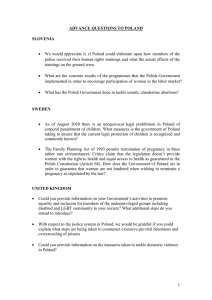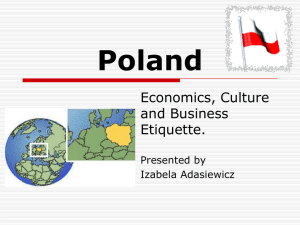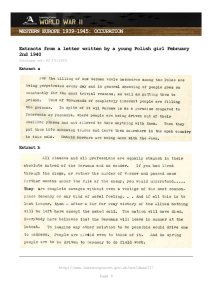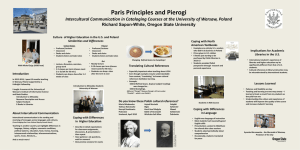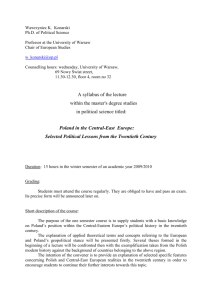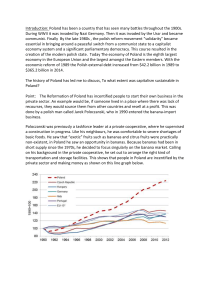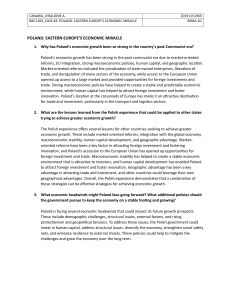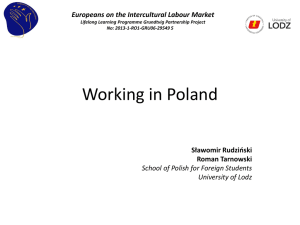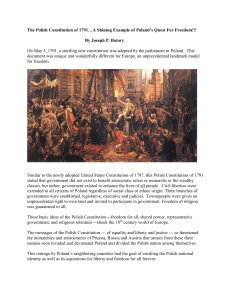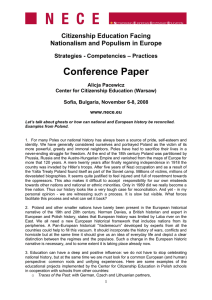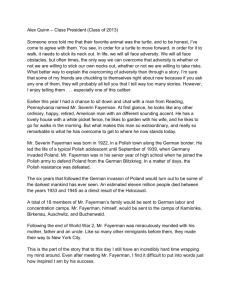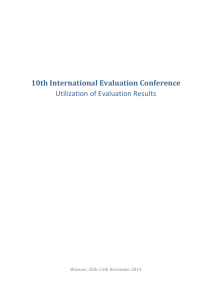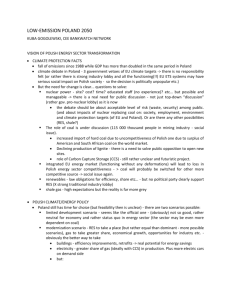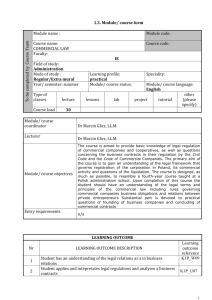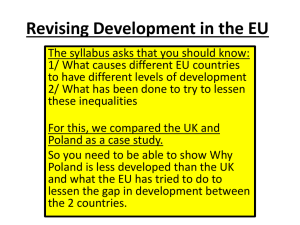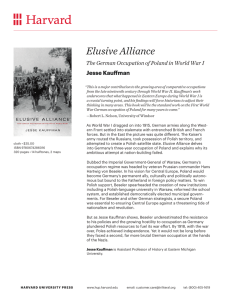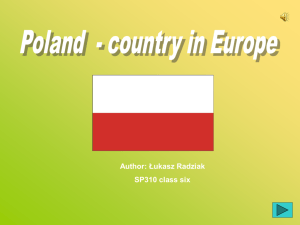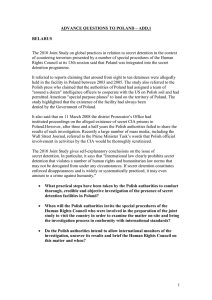the power of free enterprise - National Entrepreneurship Week
advertisement
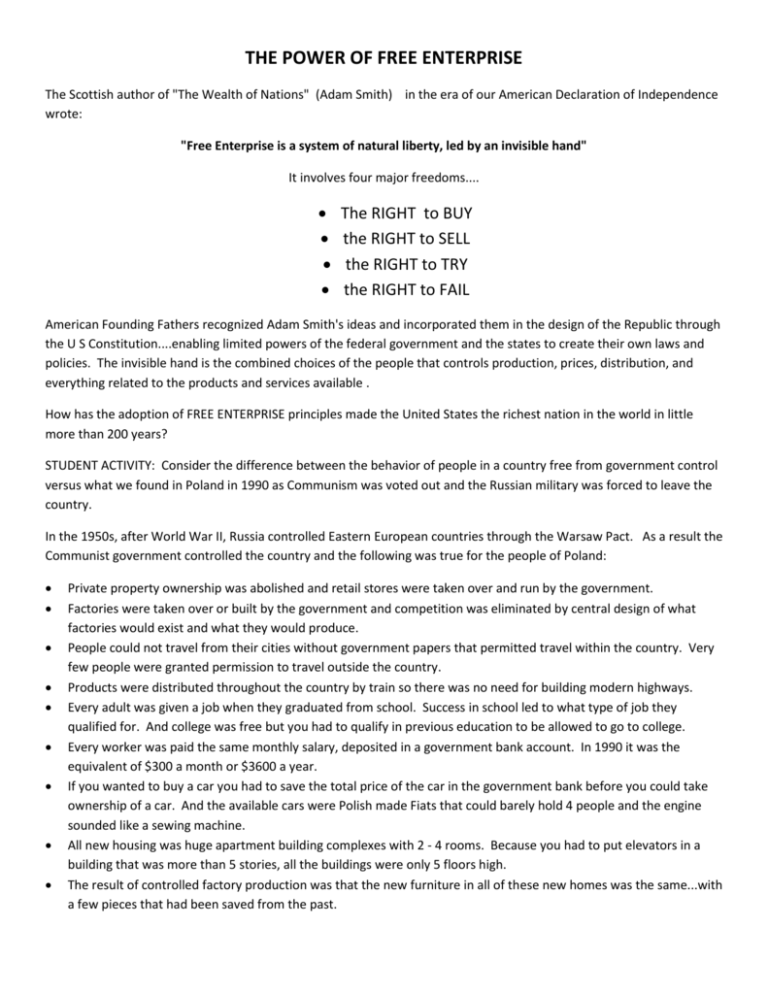
THE POWER OF FREE ENTERPRISE The Scottish author of "The Wealth of Nations" (Adam Smith) in the era of our American Declaration of Independence wrote: "Free Enterprise is a system of natural liberty, led by an invisible hand" It involves four major freedoms.... The RIGHT to BUY the RIGHT to SELL the RIGHT to TRY the RIGHT to FAIL American Founding Fathers recognized Adam Smith's ideas and incorporated them in the design of the Republic through the U S Constitution....enabling limited powers of the federal government and the states to create their own laws and policies. The invisible hand is the combined choices of the people that controls production, prices, distribution, and everything related to the products and services available . How has the adoption of FREE ENTERPRISE principles made the United States the richest nation in the world in little more than 200 years? STUDENT ACTIVITY: Consider the difference between the behavior of people in a country free from government control versus what we found in Poland in 1990 as Communism was voted out and the Russian military was forced to leave the country. In the 1950s, after World War II, Russia controlled Eastern European countries through the Warsaw Pact. As a result the Communist government controlled the country and the following was true for the people of Poland: Private property ownership was abolished and retail stores were taken over and run by the government. Factories were taken over or built by the government and competition was eliminated by central design of what factories would exist and what they would produce. People could not travel from their cities without government papers that permitted travel within the country. Very few people were granted permission to travel outside the country. Products were distributed throughout the country by train so there was no need for building modern highways. Every adult was given a job when they graduated from school. Success in school led to what type of job they qualified for. And college was free but you had to qualify in previous education to be allowed to go to college. Every worker was paid the same monthly salary, deposited in a government bank account. In 1990 it was the equivalent of $300 a month or $3600 a year. If you wanted to buy a car you had to save the total price of the car in the government bank before you could take ownership of a car. And the available cars were Polish made Fiats that could barely hold 4 people and the engine sounded like a sewing machine. All new housing was huge apartment building complexes with 2 - 4 rooms. Because you had to put elevators in a building that was more than 5 stories, all the buildings were only 5 floors high. The result of controlled factory production was that the new furniture in all of these new homes was the same...with a few pieces that had been saved from the past. Most people traveled to work, school, and to shop by bus...and they were very old and smoke-producing when I was there in the 1990s. Polish people could not buy products that were made in other countries. Government controlled purchasing from their own factories. Sometimes they bought products (or exchanged them) with other countries in the Warsaw Pact. There were a few stores for international visitors where you had to have dollars to buy goods from around the world. In many of the retail stores all the merchandise was on shelves behind the counters and a salesperson showed you what you wished and gave you a bill to take to the cashier to pay for it before actually getting the merchandise. You had to make a deposit before you could try on any of the clothes. QUESTIONS: 1. How were the people of Poland controlled in the 40 years between 1950 and 1990? 2. What was the motivation for Polish workers to be productive? 3. What was the motivation for young people to excel in school? 4. Would you want to work for the government in Poland during that period? Why? 5. How many young people could have cars? 6. What kinds of shortages do you think people had to deal with? 7, How would you guess the people took care of themselves because of the shortages? 8. When the people (with help from the Catholic Church and the Solidarity unions) voted out all the communist leadership in 1989, what do you think changed for the people of Poland? 9. How were the four freedoms from Adam Smith eliminated in Poland from 1950 - 1990? DISCUSS: Why is competition essential to free enterprise? What would change in your life if the US government provided all the needs of the people equally? Source: Consortium for Entrepreneurship Education, Columbus, OH 10/20/11
